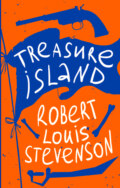
Роберт Льюис Стивенсон
Vailima Letters
CHAPTER XLIV
Vailima, Samoa,Oct. 6th, 1894.
My dear Colvin, – We have had quite an interesting month and mostly in consideration of that road which I think I told you was about to be made. It was made without a hitch, though I confess I was considerably surprised. When they got through, I wrote a speech to them, sent it down to a Missionary to be translated, and invited the lot to a feast. I thought a good deal of this feast. The occasion was really interesting. I wanted to pitch it in hot. And I wished to have as many influential witnesses present as possible. Well, as it drew towards the day I had nothing but refusals. Everybody supposed it was to be a political occasion, that I had made a hive of rebels up here, and was going to push for new hostilities.
The Amanuensis has been ill, and after the above trial petered out. I must return to my own, lone Waverley. The captain refused, telling me why; and at last I had to beat up for people almost with prayers. However, I got a good lot, as you will see by the accompanying newspaper report. The road contained this inscription, drawn up by the chiefs themselves:
‘The Road of Gratitude.’
‘Considering the great love of Tusitala in his loving care of us in our distress in the prison, we have therefore prepared a splendid gift. It shall never be muddy, it shall endure for ever, this road that we have dug.’ This the newspaper reporter could not give, not knowing any Samoan. The same reason explains his references to Seumanutafa’s speech, which was not long and was important, for it was a speech of courtesy and forgiveness to his former enemies. It was very much applauded. Secondly, it was not Poè, it was Mataafã (don’t confuse with Mataafa) who spoke for the prisoners. Otherwise it is extremely correct.
I beg your pardon for so much upon my aboriginals. Even you must sympathise with me in this unheard-of compliment, and my having been able to deliver so severe a sermon with acceptance. It remains a nice point of conscience what I should wish done in the matter. I think this meeting, its immediate results, and the terms of what I said to them, desirable to be known. It will do a little justice to me, who have not had too much justice done me. At the same time, to send this report to the papers is truly an act of self-advertisement, and I dislike the thought. Query, in a man who has been so much calumniated, is that not justifiable? I do not know; be my judge. Mankind is too complicated for me; even myself. Do I wish to advertise? I think I do, God help me! I have had hard times here, as every man must have who mixes up with public business; and I bemoan myself, knowing that all I have done has been in the interest of peace and good government; and having once delivered my mind, I would like it, I think, to be made public. But the other part of me regimbs.
I know I am at a climacteric for all men who live by their wits, so I do not despair. But the truth is I am pretty nearly useless at literature, and I will ask you to spare St. Ives when it goes to you; it is a sort of Count Robert of Paris. But I hope rather a Dombey and Son, to be succeeded by Our Mutual Friend and Great Expectations and A Tale of Two Cities. No toil has been spared over the ungrateful canvas; and it will not come together, and I must live, and my family. Were it not for my health, which made it impossible, I could not find it in my heart to forgive myself that I did not stick to an honest, common-place trade when I was young, which might have now supported me during these ill years. But do not suppose me to be down in anything else; only, for the nonce, my skill deserts me, such as it is, or was. It was a very little dose of inspiration, and a pretty little trick of style, long lost, improved by the most heroic industry. So far, I have managed to please the journalists. But I am a fictitious article and have long known it. I am read by journalists, by my fellow-novelists, and by boys; with these, incipit et explicit my vogue. Good thing anyway! for it seems to have sold the Edition. And I look forward confidently to an aftermath; I do not think my health can be so hugely improved, without some subsequent improvement in my brains. Though, of course, there is the possibility that literature is a morbid secretion, and abhors health! I do not think it is possible to have fewer illusions than I. I sometimes wish I had more. They are amusing. But I cannot take myself seriously as an artist; the limitations are so obvious. I did take myself seriously as a workman of old, but my practice has fallen off. I am now an idler and cumberer of the ground; it may be excused to me perhaps by twenty years of industry and ill-health, which have taken the cream off the milk.
As I was writing this last sentence, I heard the strident rain drawing near across the forest, and by the time I was come to the word ‘cream’ it burst upon my roof, and has since redoubled, and roared upon it. A very welcome change. All smells of the good wet earth, sweetly, with a kind of Highland touch; the crystal rods of the shower, as I look up, have drawn their criss-cross over everything; and a gentle and very welcome coolness comes up around me in little draughts, blessed draughts, not chilling, only equalising the temperature. Now the rain is off in this spot, but I hear it roaring still in the nigh neighbourhood – and that moment, I was driven from the verandah by random rain drops, spitting at me through the Japanese blinds. These are not tears with which the page is spotted! Now the windows stream, the roof reverberates. It is good; it answers something which is in my heart; I know not what; old memories of the wet moorland belike.
Well, it has blown by again, and I am in my place once more, with an accompaniment of perpetual dripping on the verandah – and very much inclined for a chat. The exact subject I do not know! It will be bitter at least, and that is strange, for my attitude is essentially not bitter, but I have come into these days when a man sees above all the seamy side, and I have dwelt some time in a small place where he has an opportunity of reading little motives that he would miss in the great world, and indeed, to-day, I am almost ready to call the world an error. Because? Because I have not drugged myself with successful work, and there are all kinds of trifles buzzing in my ear, unfriendly trifles, from the least to the – well, to the pretty big. All these that touch me are Pretty Big; and yet none touch me in the least, if rightly looked at, except the one eternal burthen to go on making an income. If I could find a place where I could lie down and give up for (say) two years, and allow the sainted public to support me, if it were a lunatic asylum, wouldn’t I go, just! But we can’t have both extremes at once, worse luck! I should like to put my savings into a proprietarian investment, and retire in the meanwhile into a communistic retreat, which is double-dealing. But you men with salaries don’t know how a family weighs on a fellow’s mind.
I hear the article in next week’s Herald is to be a great affair, and all the officials who came to me the other day are to be attacked! This is the unpleasant side of being (without a salary) in public life; I will leave anyone to judge if my speech was well intended, and calculated to do good. It was even daring – I assure you one of the chiefs looked like a fiend at my description of Samoan warfare. Your warning was not needed; we are all determined to keep the peace and to hold our peace. I know, my dear fellow, how remote all this sounds! Kindly pardon your friend. I have my life to live here; these interests are for me immediate; and if I do not write of them, I might as soon not write at all. There is the difficulty in a distant correspondence. It is perhaps easy for me to enter into and understand your interests; I own it is difficult for you; but you must just wade through them for friendship’s sake, and try to find tolerable what is vital for your friend. I cannot forbear challenging you to it, as to intellectual lists. It is the proof of intelligence, the proof of not being a barbarian, to be able to enter into something outside of oneself, something that does not touch one’s next neighbour in the city omnibus.
Good-bye, my lord. May your race continue and you flourish – Yours ever,
Tusitala.
EPILOGUE
The tenor of these last letters of Stevenson’s to me, and of others written to several of his friends at the same time, seemed to give just cause for anxiety. Indeed, as the reader will have perceived, a gradual change had during the past months been coming over the tone of his correspondence. It was not like him to be sensitive to a rough word in a friendly review, nor to recur with so much feeling to my unlucky complaint, quickly regretted and withdrawn, as to his absorption in native affairs and local interests. To judge by these letters, his old invincible spirit of inward cheerfulness was beginning to give way to moods of depression and overstrained feeling; although to those about him, it seems, his charming habitual sweetness and gaiety of temper were undiminished. Again, it was a new thing in his life that he should thus painfully feel the strain of literary work, at almost all other times his chief delight and pastime, and should express the longing to lay it down. His friend Mr. Charles Baxter and I at once telegraphed to him, as the success of the Edinburgh Edition enabled us to do, in terms intended to ease his mind and to induce him to take the rest of which he seemed so urgently in need. It seems doubtful if our words were fully understood: it is more doubtful still if that ever-shaping mind had retained any capacity for rest, except, as he had himself foretold, the rest of the grave. At any rate he took none, but on receipt of our message only turned to his old expedient, a change of labour. He gave up for a while the attempt to finish St. Ives; a task as to which I may say that he had no occasion to write so despondingly, for as a tale of adventure, manners, and the road, which is all it was meant to be, it will be found a very spirited and entertaining piece, lacking, indeed, the dénouement, and containing a chapter or two which the author would doubtless have cancelled or recast, but others which are in almost his happiest manner of invention and narrative. He gave this up, and turned to a more arduous theme, the tragic story of the Scottish moorlands, in which the varieties and the strength of border character were to be illustrated in the Four Brothers of Cauldstaneslap, and the Hanging Judge was to be called upon, like Brutus, to condemn his son, and the two Kirsties, younger and elder, were to embody one the wavering and the other the heroic soul of woman.
On this theme, which had already been working in his mind for some years, he felt his inspiration return, and laboured during the month of November and the first days of December at the full pitch of his powers and in the conscious happiness of their exercise. About the same time various external circumstances occurred to give him pleasure. The incident of the road-making, as the reader has seen, had brought home to him as nothing else could have done the sense of the love and gratitude he had won from the island people and their chiefs, and of the power he was able to exercise on them for their good. Soon afterwards, the anniversaries of his own birthday and of the American thanksgiving feast brought evidences hardly less welcome, after so much contention and annoyance as the island affairs and politics had involved him in, of the honour and affection in which he was held by all that was best in the white community. By each succeeding mail came stronger proofs from home of the manner in which men of letters of the younger generation had come to regard him as their master, their literary conscience and example, and above all their friend. Deepest, perhaps, of all lay that pleasure of feeling himself to be working once more at his best. Of the many and various gifts of this brilliant spirit – adventurer, observer, humorist, moralist, essayist, poet, critic, and romancer – of all his many and various gifts, the master gift was assuredly the creative, the gift of human and historical imagination. It was not in vain that his islanders called him Tusitala. Teller of tales he had been, first and foremost, from his childhood; seer into the hearts and fates of men and women he was growing to be more and more. The time was now ripe – had only the strength sufficed – for his career as a creative writer to enter upon a new and ampler phase. The fragment on which he wrought during the last month of his life gives to my mind (as it did to his own) for the first time the full measure of his powers; and if in the literature of romance there is to be found work more masterly, of more piercing human insight or more concentrated imaginative vision and beauty, I do not know it.
But to enter on such a task under such conditions was of all his adventures the most adventurous. The Pacific climate had brought him, as we have seen, a renewal for some years of nervous energy and joy in living, but it may be doubted if that climate is ever truly and in the long run restorative to men of northern blood. At any rate it demands as a condition of health some measure of repose, and to repose he had, here as elsewhere, been a stranger. He entered upon his new labour, taxing alike to heart and mind, with all the fibres of his brain long strained by unremitting toil in the tropic heats he loved. Readers will remember the gallant doctrine of his early essay. ‘By all means begin your folio; even if the doctor does not give you a year, even if he hesitates about a month, make one brave push, and see what can be accomplished in a week. It is not only in finished undertakings that we ought to honour useful labour. A spirit goes out of the man who means execution, which outlives the most untimely end.’ In a temper truly accordant with this doctrine he applied himself to his new task, and before it was fully half accomplished the doom so long foreshadowed and so little feared had overtaken him; he had died as he would have desired to die, and fallen smiling in the midst of the battle. That he was more or less distinctly aware of the imminence of the blow we may gather from the tenor of some of his letters written in these weeks. On the last day of his life, after a morning of happy work and pleasant correspondence, he was seen gazing long and wistfully at the mountain summit which he had chosen to be his burial-place. Towards the evening of the same day, he was talking gaily with his wife, and trying to reassure her under the sense of coming calamity which oppressed her, when the sudden rupture of a blood-vessel in the brain laid him, almost in a moment, unconscious at her feet; and before two hours were over he had passed away. To the English-speaking world he has left behind a treasure which it would be vain as yet to attempt to estimate; to the profession of letters one of the most ennobling and inspiring of examples; and to his friends an image of the memory more vivid and more dear than are the presences of almost any of the living.
APPENDIX
Address to the Chiefs on the opening of the Road of Gratitude, Oct. 1894
Mr. Stevenson said: ‘We are met together to-day to celebrate an event and to do honour to certain chiefs, my friends, – Lelei, Mataafa, Salevao, Poè, Teleso, Tupuola Lotofaga, Tupuola Amaile, Muliaiga, Ifopo, and Fatialofa. You are all aware in some degree of what has happened. You know these chiefs to have been prisoners; you perhaps know that during the term of their confinement, I had it in my power to do them certain favours. One thing some of you cannot know, that they were immediately repaid by answering attentions. They were liberated by the new administration; by the King, and the Chief Justice, and the Ta’its’ifono, who are here amongst us to-day, and to whom we all desire to tender our renewed and perpetual gratitude for that favour. As soon as they were free men – owing no man anything – instead of going home to their own places and families, they came to me; they offered to do this work for me as a free gift, without hire, without supplies, and I was tempted at first to refuse their offer. I knew the country to be poor, I knew famine threatening; I knew their families long disorganised for want of supervision. Yet I accepted, because I thought the lesson of that road might be more useful to Samoa than a thousand breadfruit trees; and because to myself it was an exquisite pleasure to receive that which was so handsomely offered. It is now done; you have trod it to-day in coming hither. It has been made for me by chiefs; some of them old, some sick, all newly delivered from a harassing confinement, and in spite of weather unusually hot and insalubrious. I have seen these chiefs labour valiantly with their own hands upon the work, and I have set up over it, now that it is finished, the name of ‘The Road of Gratitude’ (the road of loving hearts) and the names of those that built it. ‘In perpetuam memoriam,’ we say and speak idly. At least so long as my own life shall be spared, it shall be here perpetuated; partly for my pleasure and in my gratitude; partly for others; to continually publish the lesson of this road.’
Addressing himself to the chiefs, Mr. Stevenson then said: —
‘I will tell you, Chiefs, that, when I saw you working on that road, my heart grew warm; not with gratitude only, but with hope. It seemed to me that I read the promise of something good for Samoa; it seemed to me, as I looked at you, that you were a company of warriors in a battle, fighting for the defence of our common country against all aggression. For there is a time to fight, and a time to dig. You Samoans may fight, you may conquer twenty times, and thirty times, and all will be in vain. There is but one way to defend Samoa. Hear it before it is too late. It is to make roads, and gardens, and care for your trees, and sell their produce wisely, and, in one word, to occupy and use your country. If you do not others will.’
The speaker then referred to the parable of the ‘Talents,’ Matt. xxv. 14–30, and continuing, impressively asked: ‘What are you doing with your talent, Samoa? Your three talents, Savaii, Upolu, and Tutuila? Have you buried it in a napkin? Not Upolu at least. You have rather given it out to be trodden under feet of swine: and the swine cut down food trees and burn houses, according to the nature of swine, or of that much worse animal, foolish man, acting according to his folly. “Thou knewest that I reap where I sowed not, and gather where I have not strawed.” But God has both sown and strawed for you here in Samoa; He has given you a rich soil, a splendid sur copious rain; all is ready to your hand, half done. And I repeat to you that thing which is sure: if you do not occupy and use your country, others will. It will not continue to be yours or your childrens, if you occupy it for nothing. You and your children will in that case be cast out into outer darkness, where shall be weeping and gnashing of teeth; for that is the law of God which passeth not away. I who speak to you have seen these things. I have seen them with my eyes – these judgments of God. I have seen them in Ireland, and I have seen them in the mountains of my own country – Scotland – and my heart was sad. These were a fine people in the past – brave, gay, faithful, and very much like Samoans, except in one particular, that they were much wiser and better at that business of fighting of which you think so much. But the time came to them as it now comes to you, and it did not find them ready. The messenger came into their villages and they did not know him; they were told, as you are told, to use and occupy their country, and they would not hear. And now you may go through great tracts of the land and scarce meet a man or a smoking house, and see nothing but sheep feeding. The other people that I tell you of have come upon them like a foe in the night, and these are the other people’s sheep who browse upon the foundation of their houses. To come nearer; and I have seen this judgment in Oahu also. I have ridden there the whole day along the coast of an island. Hour after hour went by and I saw the face of no living man except that of the guide who rode with me. All along that desolate coast, in one bay after another, we saw, still standing, the churches that have been built by the Hawaiians of old. There must have been many hundreds, many thousands, dwelling there in old times, and worshipping God in these now empty churches. For to-day they were empty; the doors were closed, the villages had disappeared, the people were dead and gone; only the church stood on like a tombstone over a grave, in the midst of the white men’s sugar fields. The other people had come and used that country, and the Hawaiians who occupied it for nothing had been swept away, “where is weeping and gnashing of teeth.”
‘I do not speak of this lightly, because I love Samoa and her people. I love the land, I have chosen it to be my home while I live, and my grave after I am dead; and I love the people, and have chosen them to be my people to live and die with. And I see that the day is come now of the great battle; of the great and the last opportunity by which it shall be decided, whether you are to pass away like these other races of which I have been speaking, or to stand fast and have your children living on and honouring your memory in the land you received of your fathers.
‘The Land Commission and the Chief Justice will soon have ended their labours. Much of your land will be restored to you, to do what you can with. Now is the time the messenger is come into your villages to summon you; the man is come with the measuring rod; the fire is lighted in which you shall be tried; whether you are gold or dross. Now is the time for the true champions of Samoa to stand forth. And who is the true champion of Samoa? It is not the man who blackens his face, and cuts down trees, and kills pigs and wounded men. It is the man who makes roads, who plants food trees, who gathers harvests, and is a profitable servant before the Lord, using and improving that great talent that has been given him in trust. That is the brave soldier; that is the true champion; because all things in a country hang together like the links of the anchor cable, one by another: but the anchor itself is industry.
‘There is a friend of most of us, who is far away; not to be forgotten where I am, where Tupuola is, where Poè Lelei, Mataafa, Solevao, Poè Teleso, Tupuola Lotofaga, Tupuolo Amaile, Muliaiga, Ifopo, Fatialofa, Lemusu are. He knew what I am telling you; no man better. He saw the day was come when Samoa had to walk in a new path, and to be defended, not only with guns and blackened faces, and the noise of men shouting, but by digging and planting, reaping and sowing. When he was still here amongst us, he busied himself planting cacao; he was anxious and eager about agriculture and commerce, and spoke and wrote continually; so that when we turn our minds to the same matters, we may tell ourselves that we are still obeying Mataafa. Ua tautala mai pea o ia ua mamao.
‘I know that I do not speak to idle or foolish hearers. I speak to those who are not too proud to work for gratitude. Chiefs! You have worked for Tusitala, and he thanks you from his heart. In this, I could wish you could be an example to all Samoa – I wish every chief in these islands would turn to, and work, and build roads, and sow fields, and plant food trees, and educate his children and improve his talents – not for love of Tusitala, but for the love of his brothers, and his children, and the whole body of generations yet unborn.
‘Chiefs! On this road that you have made many feet shall follow. The Romans were the bravest and greatest of people! mighty men of their hands, glorious fighters and conquerors. To this day in Europe you may go through parts of the country where all is marsh and bush, and perhaps after struggling through a thicket, you shall come forth upon an ancient road, solid and useful as the day it was made. You shall see men and women bearing their burdens along that even way, and you may tell yourself that it was built for them perhaps fifteen hundred years before, – perhaps before the coming of Christ, – by the Romans. And the people still remember and bless them for that convenience, and say to one another, that as the Romans were the bravest men to fight, so they were the best at building roads.
‘Chiefs! Our road is not built to last a thousand years, yet in a sense it is. When a road is once built, it is a strange thing how it collects traffic, how every year as it goes on, more and more people are found to walk thereon, and others are raised up to repair and perpetuate it, and keep it alive; so that perhaps even this road of ours may, from reparation to reparation, continue to exist and be useful hundreds and hundreds of years after we are mingled in the dust. And it is my hope that our far-away descendants may remember and bless those who laboured for them to-day.’







